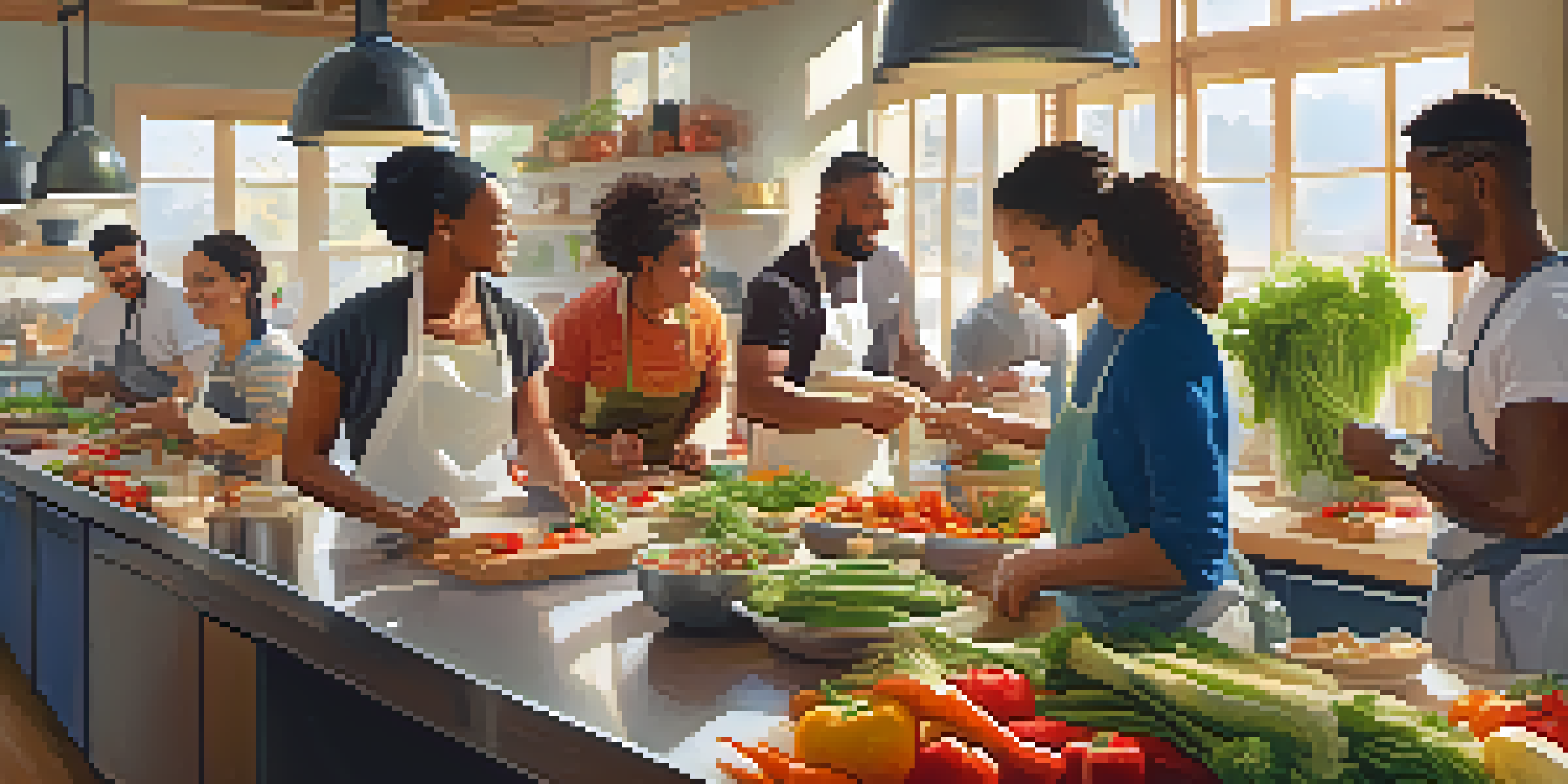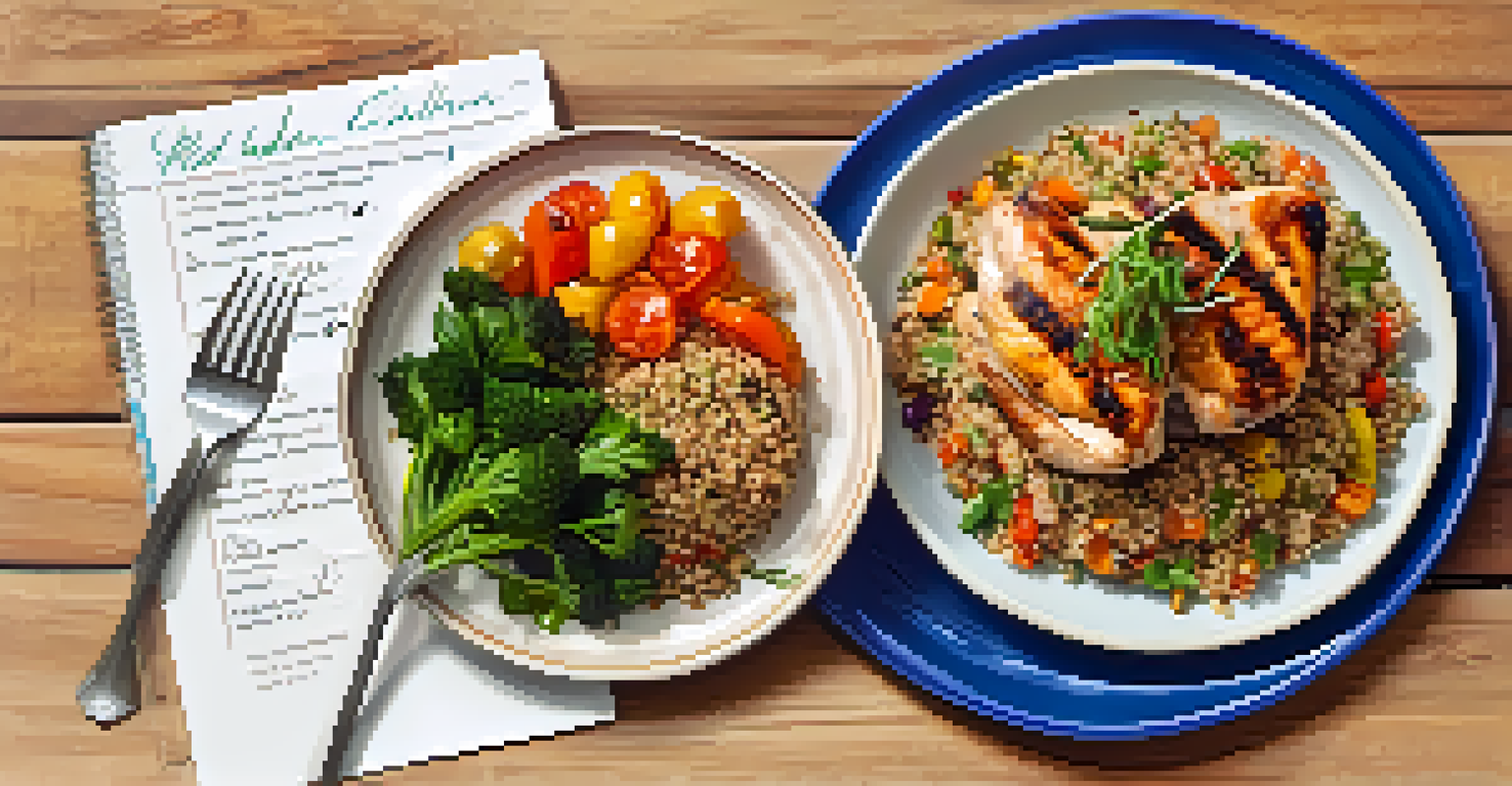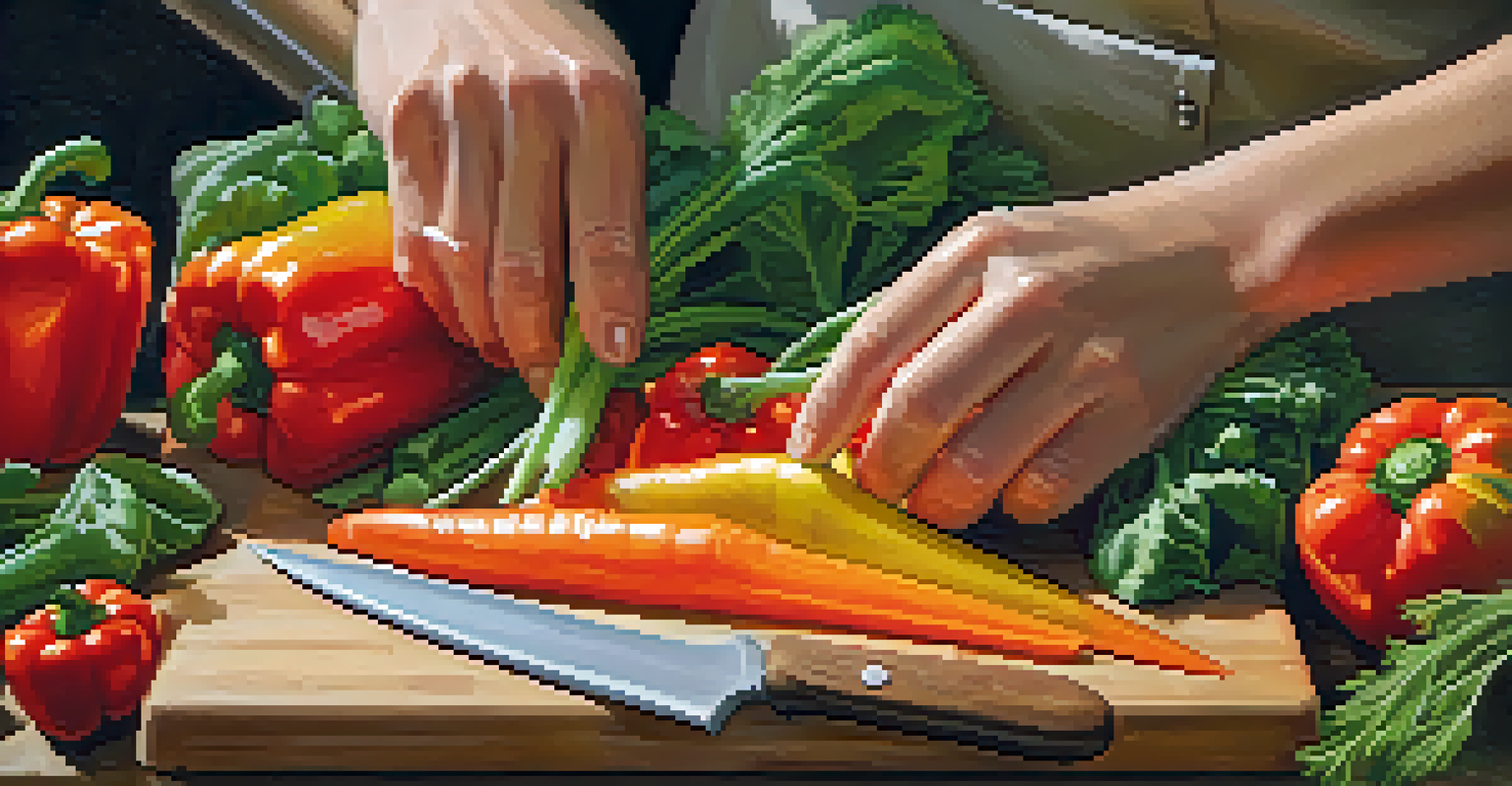Cooking Workshops for Athletes: Fuel Your Performance

Why Nutrition Matters for Athletes' Performance
Nutrition plays a crucial role in an athlete's performance and recovery. Proper fuel helps optimize energy levels, stamina, and overall health. It’s not just about eating more; it’s about eating right to support intense training and competition.
Nutrition is the foundation of performance. It is the fuel that drives athletes in their pursuit of greatness.
Many athletes often overlook the importance of meal planning and preparation. This can lead to last-minute choices that might not align with their nutritional needs. Understanding how to create balanced meals can significantly impact an athlete's performance on the field or court.
Cooking workshops provide athletes with the tools to make informed food choices. By learning basic cooking skills, they can prepare nutritious meals tailored to their specific energy and recovery needs.
What to Expect in a Cooking Workshop
Cooking workshops for athletes typically focus on practical skills and nutritional education. Participants learn not only how to cook but also the science behind food choices and how they affect performance. This dual approach makes the learning experience both practical and enlightening.

Workshops often include hands-on cooking sessions where athletes can prepare meals together. This collaborative environment fosters a sense of community and encourages sharing tips and techniques, which can be beneficial for everyone involved.
Nutrition Fuels Athletic Performance
Proper nutrition is essential for optimizing energy levels, stamina, and overall health in athletes.
Most importantly, athletes leave these workshops with recipes and meal plans tailored to their training schedules. This ensures that they can easily replicate what they've learned at home, making healthy eating more accessible.
Key Nutrients Every Athlete Should Focus On
Understanding key nutrients is vital for athletes. Carbohydrates, for example, are the primary source of energy, while proteins aid in muscle repair and growth. Healthy fats also play a role in providing sustained energy and supporting overall health.
You are what you eat, so don't be fast, cheap, easy, or fake.
In cooking workshops, athletes learn how to incorporate these nutrients into their meals. For instance, they might prepare a dish that combines whole grains, lean proteins, and colorful vegetables, ensuring a well-rounded meal.
Additionally, hydration is often emphasized. Athletes learn about the importance of fluids and electrolytes, especially during intense training sessions. This holistic approach to nutrition helps athletes enhance their performance and recovery.
Understanding Meal Timing for Optimal Performance
Meal timing can significantly influence an athlete's performance. Eating the right foods before, during, and after training or competition can enhance energy levels and recovery. Workshops often cover how to schedule meals and snacks effectively.
For example, athletes might learn about the benefits of consuming a balanced meal a few hours before a workout to fuel their efforts. Conversely, they also discover the importance of post-workout meals for muscle recovery and replenishing glycogen stores.
Meal Timing Enhances Recovery
Eating the right foods at specific times before and after training can significantly boost an athlete's performance and recovery.
By mastering meal timing, athletes can maximize their training outcomes and perform at their best. This knowledge not only benefits them during competitions but also enhances their overall athletic journey.
Exploring Different Culinary Techniques
Cooking workshops introduce athletes to various culinary techniques that can elevate their meal prep. Techniques like steaming, roasting, and grilling not only enhance flavors but also preserve nutrients, making meals healthier.
Athletes learn how to use herbs and spices to create delicious dishes without relying on excessive salt or unhealthy fats. This not only improves the taste but also adds a nutritional boost to their meals.
By experimenting with different techniques, athletes can discover new favorite recipes and cooking styles. This exploration can make healthy eating more enjoyable, which is crucial for long-term adherence to a nutritious diet.
The Social Aspect of Cooking Workshops
Cooking workshops for athletes are not just about food; they also foster social connections. Sharing a cooking experience with fellow athletes creates a sense of camaraderie and support that can enhance motivation.
As athletes collaborate in the kitchen, they exchange personal experiences and insights about nutrition and training. This shared knowledge can lead to valuable tips that extend beyond the workshop.
Cooking Workshops Build Skills
Cooking workshops equip athletes with practical skills and knowledge to prepare nutritious meals that support their training needs.
Creating these bonds in a relaxed environment can also help athletes feel less isolated in their training journeys. The friendships formed can provide ongoing encouragement, making their pursuit of peak performance more enjoyable.
How to Find the Right Cooking Workshop for You
Finding the right cooking workshop can be a game changer for athletes. Look for programs specifically tailored to athletes’ nutritional needs, as these will offer the most relevant information and skills.
Consider the expertise of the instructors as well. Workshops led by nutritionists or professional chefs with experience in sports nutrition can provide valuable insights. Additionally, check reviews or testimonials to gauge the effectiveness of the workshop.

Finally, don’t hesitate to explore different formats, such as in-person or online workshops. The right fit will depend on your learning style and schedule, but the goal remains the same: to empower you through cooking.